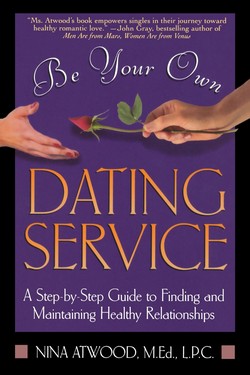Post Divorce Emotional Completion
By Nina Atwood
What if you are months or years post-divorce and you didn’t earn your way out? You can still do your “emotional homework” and prepare yourself for a better marriage in the future. Part one of the homework you do on your own. Part two is optional, depending on the relationship you have with your ex.
Part One: Take personal responsibility. Even if your spouse left you, and especially if you left him or her, it’s vital that you recognize your part in the breakdown of the marriage. Spend a significant amount of time quietly reflecting, letting go of ego and self-defense, and look at the entire pattern of the relationship. Starting at the very beginning, look at your own behavior with detachment, as if you were looking at someone else on a movie screen, and ask yourself these questions:
1. What specific thoughts, feelings, behaviors and patterns did I exhibit that stood in the way of a healthy, loving connection with my ex?
2. What specific thoughts, feelings, behavior, and communication did I withhold that if I had expressed them would have made a positive difference?
3. What did my ex need from me that I didn’t give and that would have made a positive difference?
The fall back option with this exercise is to simply acknowledge that you made a very bad choice going in. But don’t make this your “free pass”! If you take this option, you must also take responsibility for it. Just saying “bad choice” doesn’t give you much insight. Instead, you might say, “I made a bad choice of mate because I was too hungry for a relationship. In my emotional desperation for getting married and starting a family, I ignored all the signs that told me this wasn’t the right person for me.”
This admission, or something similar, gives you something to work with in the future. That’s the point of the exercise: to face your own role in the failure and to take responsibility. Personal responsibility for our lives: good, bad, success, and failure, gives us personal power. If life “happens to me,” then I have no personal power or ability to change the direction of my life. If I am the author of my life, then I can write a new chapter whenever I wish!
Part Two: Make amends. This part is optional. If your relationship with your ex is safe and at least somewhat positive, then arrange a meeting. Stay away from the topic of his or her role in the demise of the marriage – that’s for him/her to work on. Instead, acknowledge your part, being as truthful and honest as you can be. Apologize where necessary. Make sure you forgive yourself silently as you go.
Before you do amends, assess the situation carefully. Some people are not emotionally equipped to handle the amends-making process. Instead of being liberating, it can be an emotional burden. For the emotionally unself-aware, someone else’s amends resurrects past pain that was carefully buried. In this kind of case, you might opt for doing it in the office of a therapist after visiting first with the therapist and determining how appropriate it may or may not be. Or, you might do this step by proxy – meaning that you sit down with a good friend who pretends to be your ex. Even though your ex isn’t physically hearing your amends, the energy of it goes out and reaches them on a spiritual level and is just as effective.
Copyright 2006 by Nina Atwood, All Rights Reserved
No reprints without the express written permission of Nina Atwood
Entry Filed under: Divorce,Marriage,Personal Growth





